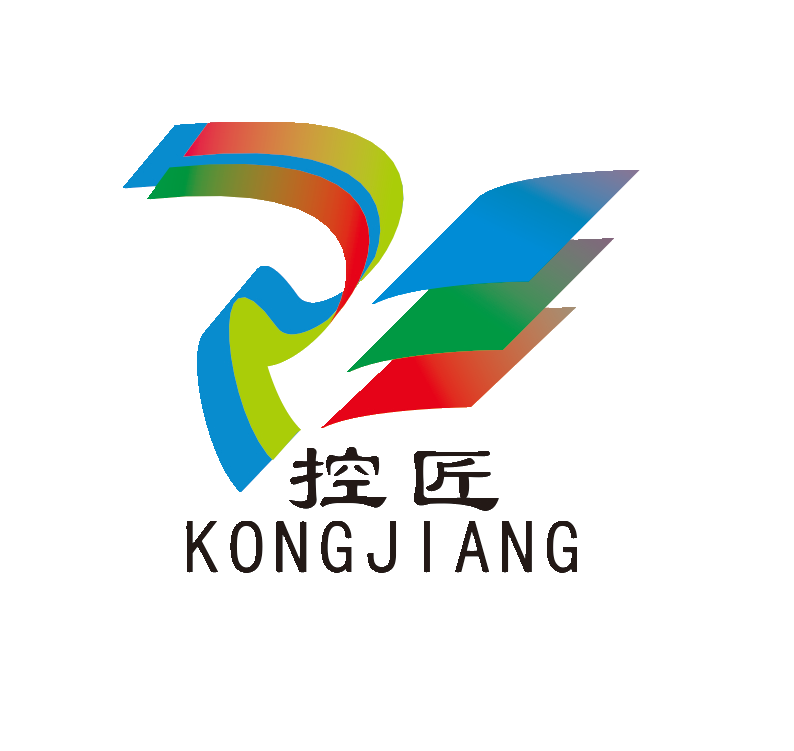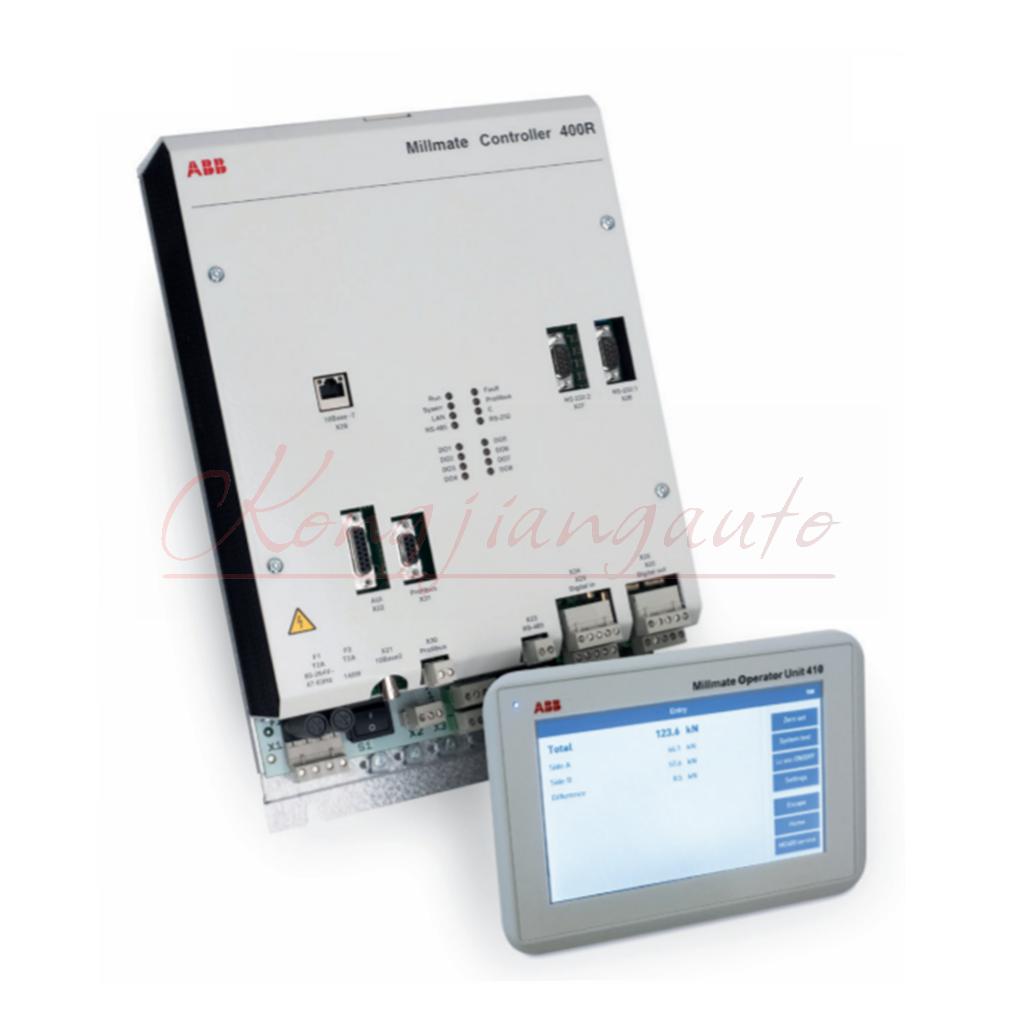

K-WANG


ABB Advant Controllers 400 Series with MOD 300 Software
ABB Advant Controllers 400 Series with MOD 300 Software
System Architecture and Functionality Overview:
Advant OCS and MOD 300 software form the framework of an open system that connects functions and people within an organisation to improve productivity and profitability.
Advant controllers are part of this system, combining high processing power and flexible software to form a powerful control system environment.
Controller Types
Advant Controller 410: Suitable for small to medium sized applications, it runs the full MOD 300 control software library, with the first few slots on the backplane for the CPU and the remaining slots supporting up to fifteen Series 100 I/O cards, making it ideal for small to medium sized, non-redundant applications.
Advant Controller 460: Optional 1:1 redundancy configuration with high-speed processor and backplane that performs multiple functions in a single controller module, accommodates up to three CPUs, and provides full 1:1 redundancy from power supply to processor and I/O modules.
Control Languages: Three powerful control language packages are available - Configurable Control Functions (CCF), Taylor Ladder Logic (TLL), and Taylor Control Language (TCL) - that provide optimal implementations of continuous control, discrete device control, supervisory control, sequential and batch control, and high-speed interlocking logic control - and the ability to mix, match, and simultaneously execute these control strategies in the same hardware. I/O Systems
I/O Systems
Series 100 I/O (S100 I/O): Consists of a card file containing I/O cards that can be configured as redundant or non-redundant, with a variety of I/O cards of varying functionality and complexity, and supporting redundant communications.
Series 800 Remote I/O (S800 I/O): is a distributed, modular I/O system that communicates with the Advant Controller 400 series via the Advant Fieldbus 100, is easy to install, highly modular and flexible, supports all standard I/O types, and the communication can be configured for full redundancy.
Individual sub-modules: Contain specific communication protocols to facilitate the integration of emerging technologies, simplify communication with other systems, and protect investments.
Investment protection: the Advant Controller 400 series is scalable and can implement all existing MOD 300 software. The individual module concept ensures cost-effective integration of evolving communication protocols in the future, and the Advant OCS and MOD 300 software are backward compatible with existing control software applications, protecting investment.
Data availability: ABB provides data sheets for the Advant Controller 460, Advant Controller 410, S100 I/O system and S800 I/O system, which can be accessed on the website for more information.
System Architecture and Overall Functionality:
Advant OCS with MOD 300 software builds an open system framework to break down the barriers between different parts of the organisation,
realise the efficient synergy of functions and personnel, and ultimately achieve the goals of productivity improvement and profitability growth.
Advant controller, as the key component of the system, combines powerful processing capability and flexible software to create a fully functional control
system environment, which provides powerful support for the automation control of industrial production. automation control.
Controller Types
Advant Controller 410:
tailored for small and medium-sized application scenarios, with the ability to run the complete MOD 300 control software library.
Its unique backplane design, with the first few slots dedicated to the CPU and the remaining slots supporting up to fifteen Series 100 I/O cards,
makes it ideal for small to medium-sized non-redundant applications. On the production line of a small factory, the Advant Controller 410 can efficiently manage the operation of the equipment with its precise control capability,
ensuring the stability and smoothness of the production process.
Advant Controller 460:
With an optional 1:1 redundancy configuration, the Advant Controller 460 is equipped with a high-speed processor and a high-performance backplane.
This design allows for the execution of many complex functions within a single controller module,
with up to three CPUs and full 1:1 redundancy coverage from the power supply module, to the processor, to the I/O modules.
In large chemical companies, where production processes leave no room for error, the Advant Controller 460's redundant design ensures that if one module
fails, the backup module takes over quickly and seamlessly, maintaining production continuity and avoiding production interruptions
and financial losses due to equipment failure.
Control Languages:
The system is equipped with three powerful control language packages, each of which offers unique advantages in different control areas.
1. Configurable Control Functions (CCF): Adopting an easy-to-configure function block structure, it excels in continuous process control,
discrete equipment handling and alarm detection.
It has a rich library of functions that can be configured by the user through a menu-driven software package with a fill-in-the-blanks approach,
making it easy and fast to operate. In continuous chemical production, the CCF precisely adjusts temperature, pressure,
and other parameters to ensure optimal reaction conditions, while detecting and responding to alarms triggered by equipment malfunctions.
2. Taylor Ladder Logic (TLL): Mainly used in the field of high-speed process interlocking and control logic,
it provides industry-standard ladder logic control and processing functions.
This eliminates the need for separate programmable controllers and reduces costs.
In automated production lines, TLL can accurately control the start-stop sequence and operation logic of equipment,
ensuring that the production process of products is carried out in an orderly manner.
3. Taylor Control Language (TCL): A structured high-level process language,
its programmable flexibility makes it useful in batch control, recipe management, batch report generation, process scheduling,
supervisory control, and process start-up and shut-down. During batch production in the food and beverage industry,
TCL can accurately control the production process according to different product recipes and production process requirements,
achieving efficient batch production management.
These three control languages can be flexibly combined and work together in the same hardware environment,
providing great convenience for meeting diversified production control needs.
I/O System
Series 100 I/O (S100 I/O): consists of a card file containing a variety of I/O cards, which can be flexibly configured in redundant
or non-redundant modes according to the actual needs, with a wide range of functions, including analogue, digital, pulse,
RTD and thermocouple connections, etc., and redundant communication, which provides multiple guarantees for the stable operation of the system.
In power monitoring systems where reliability of data transmission is critical,
the redundant communication function of the S100 I/O ensures accurate data transmission and avoids data loss or errors caused by communication failures.
Series 800 Remote I/O (S800 I/O): As a distributed, modular I/O system, it communicates with the Advant Controller 400 series via the Advant Fieldbus 100.
Designed with ease of installation in mind, the I/O modules and process wiring are extremely easy to install.
In addition, it is highly modular and flexible, can be freely combined with I/O modules according to different application scenarios
and installation requirements, supports all standard I/O types, and the communication can be configured to be fully redundant,
which effectively reduces the installation time, panel space occupation, system downtime and maintenance costs.
In the distributed control system of large factories, S800 I/O can quickly adapt to complex production environments
and efficiently collect and transmit field data.
Personalised submodules:
Built-in specific communication protocols are the key to the system's ability to keep up with the times and integrate emerging technologies.
When it is necessary to connect new interfaces or adopt new communication protocols, simply plug the corresponding personality submodule into
the controller. This design greatly simplifies the communication process with other systems and provides effective protection for the enterprise's investment.
In the context of Industry 4.0, as new technologies emerge, personality submodules enable
Advant controllers to easily integrate new fieldbus or high-speed fibre-optic communication technologies,
ensuring that the system remains state-of-the-art.
Investment protection:
The Advant Controller 400 series is scalable from small projects to large and complex applications,
and seamlessly implements all existing MOD 300 software, protecting your investment in existing software.
The design concept of personalised modules provides a cost-effective solution for future communication protocol updates and extensions,
so that enterprises do not need to replace hardware devices on a large scale, but only need to update the personalised modules to support
new communication protocols.Advant OCS and MOD 300 software have backward compatibility,
which can be perfectly adapted to the existing control software applications, ensuring that enterprises do not need to worry about system upgrades
for a long time to come. Advant OCS and MOD 300 software are backward compatible with existing control software applications,
ensuring that companies do not have to worry about wasted investment in system upgrades for a long time to come.
Access to information:
ABB provides detailed product literature, including data sheets for the Advant Controller 460, Advant Controller 410,
S100 I/O system and S800 I/O system. Users can visit the official website of ABB (www.abb.com/controlsystems) to obtain these materials,
in order to deeply understand the detailed information and technical parameters of the products, and provide a strong reference for the selection
and configuration of the actual application.

- YOKOGAWA
- Reliance
- ADVANCED
- SEW
- ProSoft
- WATLOW
- Kongsberg
- FANUC
- VSD
- DCS
- PLC
- man-machine
- Covid-19
- Energy and Gender
- Energy Access
- Renewable Integration
- Energy Subsidies
- Energy and Water
- Net zero emission
- Energy Security
- Critical Minerals
- A-B
- petroleum
- Mine scale
- Sewage treatment
- cement
- architecture
- Industrial information
- New energy
- Automobile market
- electricity
- Construction site
- HIMA
- ABB
- Rockwell
- Schneider Modicon
- Siemens
- xYCOM
- Yaskawa
- Woodward
- BOSCH Rexroth
- MOOG
- General Electric
- American NI
- Rolls-Royce
- CTI
- Honeywell
- EMERSON
- MAN
- GE
- TRICONEX
- Control Wave
- ALSTOM
- AMAT
- STUDER
- KONGSBERG
- MOTOROLA
- DANAHER MOTION
- Bentley
- Galil
- EATON
- MOLEX
- Triconex
- DEIF
- B&W
- ZYGO
- Aerotech
- DANFOSS
- KOLLMORGEN
- Beijer
- Endress+Hauser
- schneider
- Foxboro
- KB
- REXROTH
- YAMAHA
- Johnson
- Westinghouse
- WAGO
- TOSHIBA
- TEKTRONIX
- BENDER
- BMCM
- SMC
- HITACHI
- HIRSCHMANN
- XP POWER
- Baldor
- Meggitt
- SHINKAWA
- Other Brands
- other brands
-
ABB R1091 Industrial Automation Control Module
-
ABB BIO0003 Binary Input Output Module
-
ABB CPU0002 Industrial Control Processor Module
-
ABB M063B Industrial Control Module
-
ABB IMDS003 Control System Module
-
ABB 5SHX08F4502 Power Semiconductor Module
-
ABB RMIO-12C Drive Control Board
-
ABB XO08R1-B4.0 Industrial Control Module
-
ABB 5SGX1060H0003 IGCT Power Semiconductor Module
-
ABB 81EU01E-E Industrial Control Module
-
ABB DSRF197K01 Control System Interface Module
-
ABB TK802F Control System Connection Cable
-
ABB 3BHE039203R0101 Industrial Power Control Board
-
ABB 3BHB004027R0101 Industrial Control Circuit Board
-
ABB 3BHB003154R0101 Industrial Control Circuit Board
-
ABB PM864AK01-eA AC800M Processor Unit
-
ABB CI868K01-eA Communication Interface Module
-
ABB 5SHY35L4520 IGCT Power Semiconductor Module
-
ABB UNS0119A-P V101 Automation Interface Board
-
ABB GCC960C103 Industrial Control Module
-
ABB GVC736CE101 Control System Interface Module
-
ABB PCD244A101 Process Control Communication Module
-
ABB GFD212A Field Device Interface Module
-
ABB PDD200A101 Power Drive Module Industrial Automation Component
-
ABB SPIET800 Ethernet Communication Module Industrial Network Interface
-
ABB SPAD346C3 Protection Relay Module Industrial Power System
-
ABB 15.04.20.05 Industrial Control Module Automation Component
-
ABB FPX86-9329--C Control Processor Module Industrial Automation System
-
ABB ARCOL 0339 Industrial Power Resistor Component
-
ABB 5SDD1060F0001 Thyristor Module High Power Semiconductor Device
-
ABB KUC720AE Control Unit Industrial Automation Processor
-
ABB UFC718AE01 Control Board Industrial Automation Module
-
ABB FI820F Fieldbus Interface Module Industrial Communication System
-
ABB CB801 Communication Base Unit Control System Module
-
ABB DSAI130D Analog Input Module Industrial Control System
-
ABB 086345-504 Control Board Module Industrial Automation Component
-
ABB PFCL201C 10KN Load Cell Tension Measurement Module
-
ABB 3HAC17484-8108 Robot Drive Unit Industrial Motion Control Module
-
ABB 5SHY3545L0009 IGCT Module High Power Semiconductor Device
-
ABB NPCT-01C Process Control Terminal – Industrial Automation Interface
-
ABB 216DB61 AC Motor Protection Relay – Reliable Motor Safety and Control
-
ABB 216AB61 AC Motor Protection Relay – Industrial Motor Safety
-
ABB 5SHX1060H0003 High Voltage Circuit Breaker – Reliable Industrial Protection
-
ABB 3BHB003154R0101 AC Drive Module – Industrial Automation Solutions
-
ABB UAD149A0011 Industrial Excitation Control Module for Advanced Drive Systems
-
ABB UAD149 Excitation Control Unit
-
ABB PFEA113-20 Tension Measurement Module
-
ABB GDD471A001 Drive Control Board
-
ABB UCD224A103 Control Unit Module
-
ABB PDD205A1121 Power Drive Control Module
-
ABB DSPC454 Processor Module
-
ABB 81EU01E-E Excitation Control Module
-
ABB TK457V050 Control Cable Assembly
-
ABB DSRF197K01 I/O Interface Module
-
ABB TK802F Communication Cable Assembly
-
ABB 3BHE039203R0101 Control Interface Module
-
ABB 3BHB004027R0101 Power Control Board
-
ABB 3BHB003154R0101 Power Control Board
-
ABB PM864AK01-eA AC 800M Processor Unit
-
ABB CI868K01-eA Communication Interface Module
-
ABB 5SHY35L4520 IGCT Power Semiconductor Module
-
ABB UNS0119A-P V101 Control Interface Module
-
ABB GCC960C103 Control Communication Board
-
ABB GVC736CE101 Voltage Control Module
-
ABB PCD244A101 Control Processor Module
-
ABB GFD212A Ground Fault Detection Module
-
ABB PPD513 A2A‑11165 Industrial Automation Controller
-
ABB PDD200A101 Digital Processing Device
-
ABB SPIET800 Industrial Automation Interface Module
-
ABB SPAD346C3 Protection and Automation Device
-
ABB FPX86-9329--C Power Interface Board
-
ABB ARCOL0339 Precision Power Resistor
-
ABB 5SDF0860H0003 Phase Control Thyristor Module
-
ABB KUC720AE01 Drive Control Module
-
ABB UFC718AE01 Control Interface Unit
-
ABB 5SHX2645L0004 IGCT Power Semiconductor Module
-
ABB SPHSS03 High-Speed Signal Processing Module
-
ABB CB801 Communication Backbone Module
-
ABB DSAI130D Analog Input Module
-
ABB 086345-504 Industrial Interface Control Module
-
ABB PFCL201C 10KN Tension Measurement Module
-
ABB 3HAC17484-8108 Industrial Control Module
-
ABB 5SHY3545L0009 IGCT Power Semiconductor Module
-
ABB NPCT-01C Control Processing Module
-
ABB 216AB61 Industrial Control Module for Automation Systems
-
ABB 5SHX1060H0003 High Power Thyristor Module for Industrial Power Control
-
ABB 07KT97H3 PLC Central Processing Unit for Industrial Automation
-
ABB 3BHB005171R0101 Power Semiconductor Module for Industrial Power Systems
-
KEBA E-SP-CCEC/A/22 - Keyboard Panel
-
KEBA ERHL33 - Module
-
KEBA K-FTC-AN/B - Control Panel Board
-
KEBA DO321 1914D-0 - Digital Output Module
-
KEBA T70Q - Teach Pendant
-
KEBA BL272/A / BL272/B - Bus Coupling Module
-
KEBA T70R - Teach Pendant
-
KEBA PRONET-E-20A-K - Servo Drive
-
KEBA T55-RA0-AU0-LK - Mobile HMI KeTop
-
KEBA DO-272/A - Digital Output Module
-
KEBA PS240/A - Power Supply Module
-
KEBA 2134-00393 - Module Code
-
KEBA E-10-ANALOG-SU - Analog Card
-
KEBA 1904D-0 / D1458E - E-10 Analog Card
-
KEBA FM265A - Function Module
-
KEBA CR17910086 - Controller Board
-
KEBA C5G-TP5WC2 - Robot Teach Pendant
-
KEBA PD242A - Power Supply Module
-
KEBA DI-325 - Digital Input Card
-
KEBA C2-TM-240/A - Digital Input Module
-
KEBA D1547C - I/O Bus Coupling Board
-
KEBA CR-092 - Interface Module
-
KEBA 3HAC023195-003 - IRC5 Teach Pendant Cable
-
KEBA KETOP-T150-MA0 - Mobile HMI
-
KEBA KC-P30-EC24011 - Control Module
-
KEBA 1770B-1 - E-8-THERMO Card
-
KEBA T20T-T00-AR0-CE6 - KeTop Terminal
-
KEBA D1633C-1 - CPU Card
-
KEBA HT401-232-8/0 - Teach Pendant
-
KEBA AO-570 - Analog Output Module
-
KEBA T10-mAb-DMV - Handheld Terminal
-
KEBA C70-rqa-AK0-Le - KeTop Teach Pendant
-
KEBA 1918F-0 - Digital Output Board
-
KEBA T10-mAa-DMV - Handheld Terminal
-
KEBA HT2-SCHLUSSELS - Key Switch for HT2
-
KEBA T100-003-CES - HMI Terminal
-
KEBA GVME610IO - I/O Module
-
KEBA HT501-231 - Teach Pendant
-
KEBA E-CG-CONTROL - Graphic Control Card
-
KEBA D1420F - F-SIC-1 Circuit Board

KONG JIANG


Add: Jimei North Road, Jimei District, Xiamen, Fujian, China
Tell:+86-15305925923


